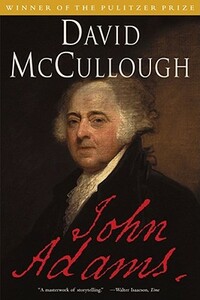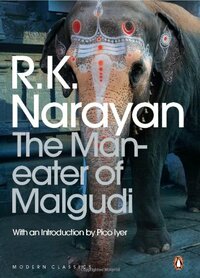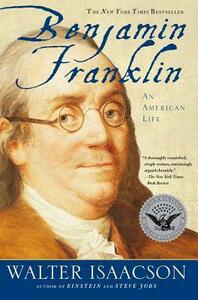Take a photo of a barcode or cover
manish25's Reviews (114)
adventurous
emotional
informative
inspiring
reflective
sad
tense
medium-paced
A Brilliant Portrait of Leadership: Jon Meacham’s Thomas Jefferson: The Art of Power
Jon Meacham’s Thomas Jefferson: The Art of Power is a masterful biography that takes readers on an intellectual and emotional journey through the life of one of America’s most complex and consequential figures. Meacham's expert storytelling and deep understanding of history elevate this book far beyond a traditional political biography, presenting Jefferson not just as a Founding Father, but as a visionary whose understanding of power, its uses, and its limitations reshaped the American experiment.
What makes The Art of Power so compelling is Meacham’s ability to show the nuanced and often contradictory nature of Jefferson's character. The book goes beyond the myth and iconography surrounding Jefferson and paints a portrait of a man who, though deeply principled, was also pragmatic, sometimes calculating, and often conflicted in his pursuit of power. Meacham skillfully explores Jefferson’s political career, from his role in crafting the Declaration of Independence to his presidency, shedding light on how his personal beliefs—particularly his commitment to liberty—interacted with the practical realities of governance.
The theme of power runs through the entire narrative, and Meacham presents Jefferson’s relationship with it as one marked by both brilliance and struggle. As Meacham writes, Jefferson’s success was not simply a matter of intellectual prowess but of his ability to navigate and manipulate the levers of power in ways that both advanced his vision for the nation and protected his personal legacy. The author captures Jefferson’s paradoxical nature: a man who championed individual rights yet owned slaves, who sought to limit the reach of government but expanded presidential power in key ways, and who was committed to an agrarian republic even while benefiting from the very systems he sought to challenge.
Meacham’s analysis of Jefferson’s personal life is equally compelling. He deftly portrays Jefferson's complex relationships—especially with his enslaved mistress, Sally Hemings—without sensationalizing them, offering a poignant commentary on the intersection of private lives and public ideals. This exploration of Jefferson’s contradictions provides a deeper, more humanizing understanding of the man behind the myth.
The prose is elegant yet accessible, making The Art of Power a book that appeals to both history enthusiasts and those new to Jefferson’s story. Meacham’s capacity to weave together narrative, historical analysis, and political philosophy ensures that this book is as thought-provoking as it is captivating. His insights into Jefferson’s leadership style, his grasp of power’s nuances, and his ability to balance ideals with the practicalities of governance make The Art of Power an indispensable read for anyone interested in the complexities of leadership.
In Thomas Jefferson: The Art of Power, Jon Meacham has crafted a biography that is not only a deep dive into the life of one of America’s most influential figures but also a reflection on the nature of power itself—its challenges, its responsibilities, and its potential to shape the course of history. This book is a must-read for those seeking a richer understanding of Jefferson and the enduring lessons his life offers for leaders in every age.
adventurous
emotional
informative
inspiring
sad
tense
medium-paced
David McCullough’s John Adams is a masterful work of historical biography that brings one of America’s most pivotal founding fathers to life in vivid detail. McCullough’s storytelling ability is unparalleled—he weaves together extensive research, personal letters, and historical context into a compelling narrative that captures not only the public achievements of John Adams but also the private struggles and complex character of the man himself.
What sets John Adams apart from many other historical biographies is McCullough’s deep empathy for his subject. Through his insightful portrayal, Adams emerges as both a brilliant statesman and an imperfect, often conflicted individual. The book’s strength lies in its ability to humanize Adams, showing his tireless commitment to the revolution and the nation, while also revealing his insecurities, personal doubts, and the toll that his intense devotion to duty took on his family and himself.
McCullough does a remarkable job of placing Adams within the larger tapestry of American history, capturing the revolutionary fervor of the late 18th century and the complicated relationships between the Founding Fathers. His depiction of Adams’ partnership with Thomas Jefferson, both as allies and later as rivals, is especially poignant and gives the reader a deeper understanding of the personal and political dynamics that shaped the early Republic.
The book’s pacing is steady and engaging, keeping the reader absorbed throughout Adams’ long and eventful life. McCullough’s writing is eloquent yet accessible, and his thorough research lends the biography an air of authenticity and authority. John Adams is not just a biography; it’s a rich, immersive look at the birth of the United States through the eyes of one of its most consequential leaders.
Ultimately, John Adams is an exemplary work of historical fiction that transcends the genre, offering readers both a profound education and an unforgettable portrait of a man whose ideals, determination, and vision were integral to the founding of the American republic. It is a must-read for anyone interested in history, leadership, or the complexities of the American Revolution.
adventurous
dark
informative
mysterious
tense
medium-paced
LAST BOOK OF 2024 READING CHALLENGE!
Ian Kershaw’s Hitler: Hubris is nothing short of a monumental achievement in the study of history. As the first volume in Kershaw’s two-part biography of Adolf Hitler, Hitler: Hubris offers a meticulous, deeply insightful exploration into the life and rise of one of history’s most infamous figures. Kershaw’s masterful synthesis of historical detail, psychological acuity, and sharp analysis makes this work essential reading for anyone seeking to understand the personality and machinations that brought Hitler to power.
What sets Hubris apart from other biographies of Hitler is Kershaw’s unparalleled ability to contextualize the man within both the turbulent political climate of post-World War I Germany and the broader currents of European history. Kershaw doesn’t simply recount events in Hitler’s life; he dissects the complex socio-political forces that shaped him, his ideology, and his path to power. From Hitler’s early years in Vienna, to his experience as a soldier in World War I, and his eventual rise through the Nazi Party ranks, Kershaw takes the reader on an extraordinary intellectual journey through the German landscape of the early 20th century.
One of the book’s most compelling features is Kershaw’s exploration of Hitler's "hubris"—his extreme self-belief and the dangerous fusion of personal ambition with ideological conviction that made him an extraordinarily destructive figure. Kershaw’s detailed analysis of Hitler’s character, personality, and interactions with key figures offers a chilling portrait of a man whose delusions of grandeur, combined with a ruthless political strategy, would have catastrophic consequences for Germany and the world.
Kershaw’s style is both scholarly and accessible. His prose is precise and clear, with a compelling narrative drive that keeps the reader engaged even through the more intricate political and historical details. The book is meticulously researched, drawing on a vast array of primary sources—many of which are translated for the first time—and incorporating the latest historiographical developments. This gives the book a freshness and depth that is rare in biographies of such a well-known figure.
Another strength of Hitler: Hubris is Kershaw’s ability to provide nuanced insights into the broader cultural and political environment of Nazi Germany, showing how Hitler's rise was not merely a product of his personal traits, but also a consequence of the volatile social and economic conditions of post-WWI Germany. The analysis of the Nazi Party’s appeal, the role of propaganda, and the manipulation of mass psychology underscores just how Hitler’s success was both a personal and collective phenomenon.
For those interested in the psychology of power and the making of a dictator, Hubris is a crucial work. Kershaw’s treatment of Hitler’s early years reveals a man who, despite his evident talents as a propagandist and politician, was a figure driven by insecurities and internal contradictions—qualities that would eventually contribute to his downfall. But what makes the book so haunting is the realization that, as Kershaw masterfully shows, Hitler’s rise was not inevitable but rather a dangerous confluence of individual ambition, historical chance, and a society’s willingness to follow.
In conclusion, Hitler: Hubris is a stellar and deeply absorbing biography that sets a new standard for works on the life of Adolf Hitler. Ian Kershaw’s scholarship is unmatched, and his ability to blend historical rigor with narrative flair makes this book a compelling read for both scholars and general readers alike. This first volume not only lays the groundwork for understanding the man behind the monster but also invites reflection on the social and political forces that allowed such a figure to come to power. As a result, Hubris is indispensable reading for anyone seeking to understand the history of the 20th century and the darker corners of human ambition.
adventurous
dark
reflective
tense
medium-paced
adventurous
funny
tense
fast-paced
adventurous
funny
lighthearted
relaxing
fast-paced
adventurous
emotional
funny
fast-paced
adventurous
informative
reflective
relaxing
sad
tense
medium-paced
informative
fast-paced
adventurous
fast-paced







